
The age-old saying “You are what you eat” holds particular relevance when considering brain health. The nutrients we consume play a critical role in maintaining optimal cognitive function, mood stability, and sustained mental energy. Rather than relying on short-lived boosts from sugary snacks or energy drinks, lasting benefits come from whole, nutrient-dense foods that support the body’s complex biological systems.
Scientific evidence increasingly supports the idea that specific foods can contribute to improved memory, sharper focus, and even enhanced emotional well-being. These foods help the body produce energy efficiently, support cellular repair, and promote neuroprotection. Many of these options are everyday items readily found in home kitchens, waiting to be incorporated into balanced meals.
By focusing on these nutrient-rich choices, individuals can take meaningful steps toward better cognitive performance and overall health. The following guide explores several well-researched foods that provide substantial benefits for brain function, offering a practical path to improved mental vitality through nutrition.
Oily Fish and Cognitive Health: The Role of Omega-3s in Brain Function
Among all brain-supportive foods, oily fish holds a distinguished position. Species such as salmon, mackerel, and sardines are not only rich in high-quality protein but are also among the most concentrated sources of omega-3 fatty acids, which are essential for cognitive function and overall neurological health. Fish has been a valuable component of human diets throughout history, offering vital nutritional benefits.
Omega-3 fatty acids, particularly EPA and DHA, are critical for brain development, cellular communication, and the maintenance of neuronal structure. These fats are integral to the composition of brain cell membranes and support neuroplasticity, the brain’s ability to adapt and form new connections. Adequate omega-3 intake is also associated with a reduced risk of cognitive decline and age-related memory loss.
Incorporating oily fish into meals on a regular basis contributes not only to optimal brain health but also supports cardiovascular function. A healthy circulatory system ensures that the brain receives the oxygen and nutrients it requires for peak performance. Whether consumed baked, steamed, or as part of a balanced dish, oily fish offers a highly effective and palatable means of nourishing the brain.
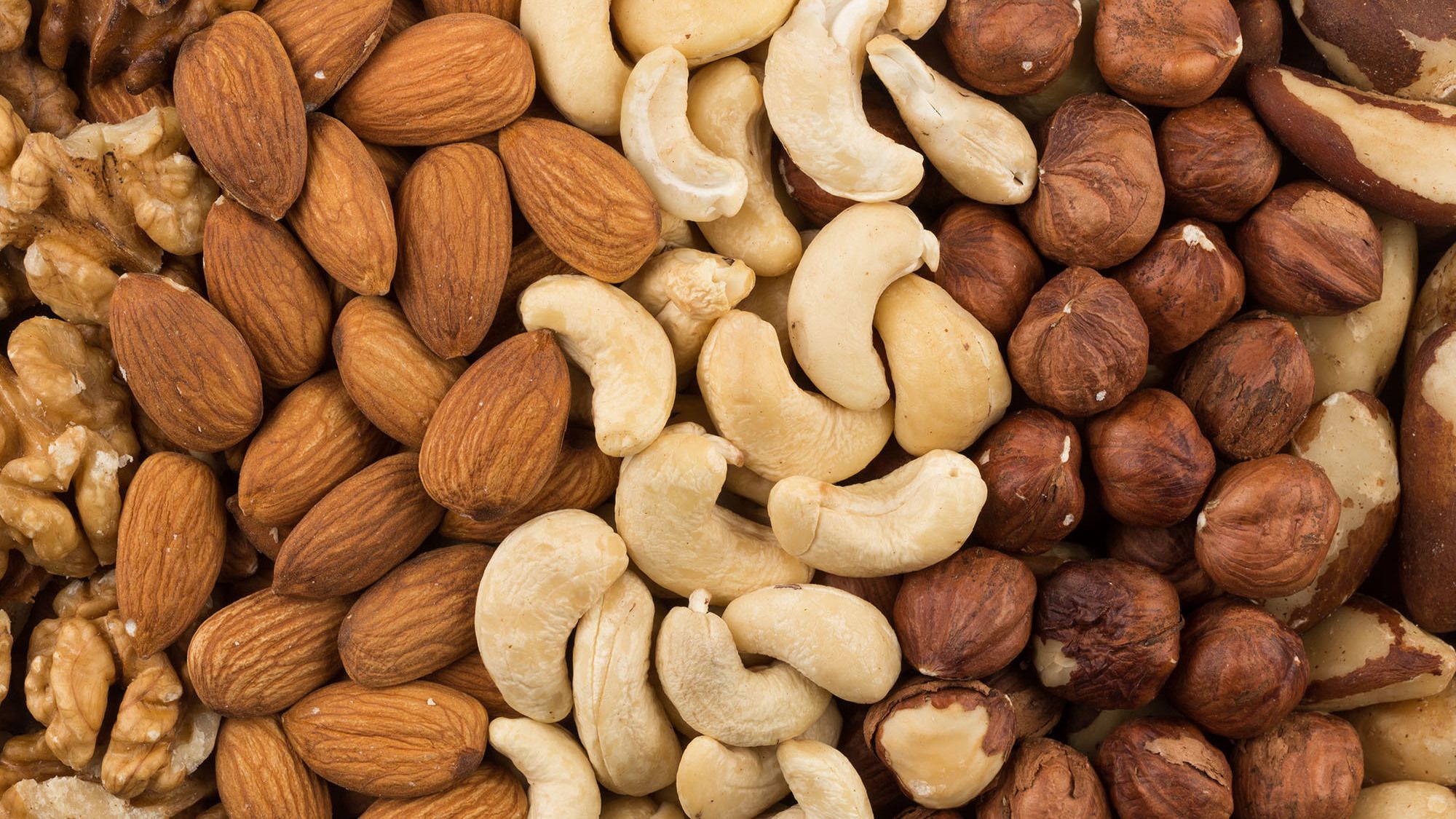
Nutrient-Dense Nuts: Small Sources of Cognitive and Cardiovascular Strength
Nuts, though small in size, are remarkably potent in promoting both cognitive function and overall health. Botanically classified as a fruit with a hard shell and a seed that remains enclosed, nuts have long been valued for their nutrient density and culinary versatility. In many cultures, they represent a staple component of the diet, supplying essential energy and vital nutrients.
Beyond their role as a convenient snack, nuts are closely associated with a range of health benefits, including improvements in cardiovascular function and metabolic stability. These systems are intricately linked to brain performance, as a healthy heart and balanced metabolism help ensure that the brain receives consistent blood flow and essential nutrients for optimal functioning.
Extensive research, including numerous clinical trials focused on almonds, underscores the comprehensive health-promoting properties of nuts. These benefits include support for healthy weight maintenance, improvements in metabolic health markers, and positive effects on gut microbiota. This integrative impact illustrates the close connection between a well-functioning body and an alert, resilient mind.
Incorporating a moderate portion of nuts into one’s daily diet can thus be a strategic and effective approach to enhancing cognitive vitality and supporting long-term well-being.
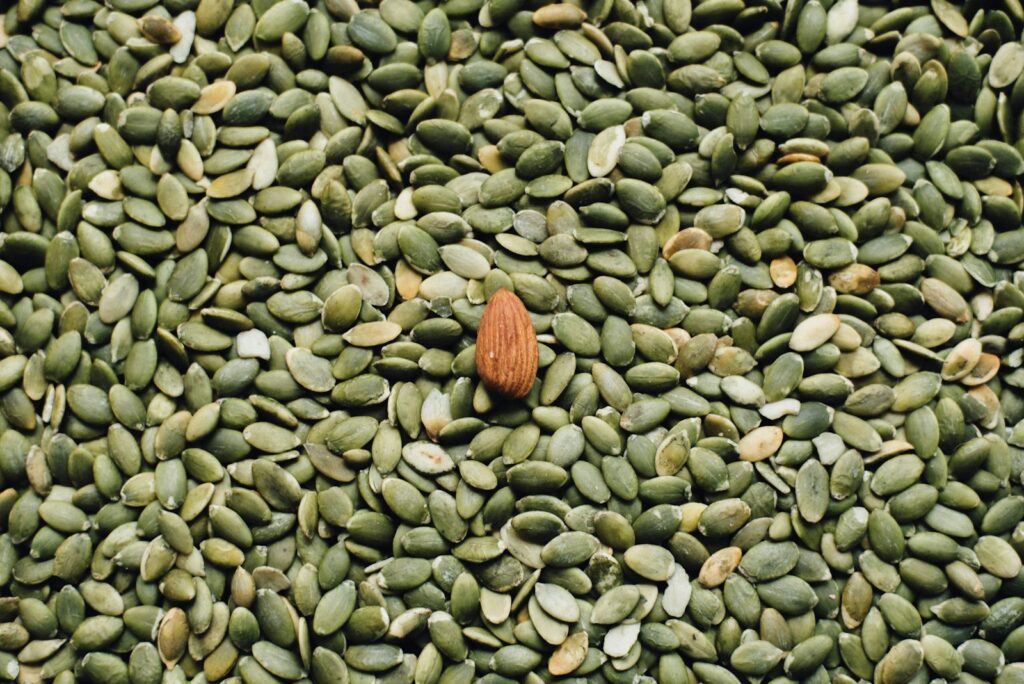
Seeds: Compact Sources of Sustained Energy and Cognitive Support
Edible seeds, much like their botanical counterparts in the nut family, are renowned for their exceptional nutrient density and indispensable role in the human diet. A substantial proportion of global caloric intake originates from seeds, particularly those in the form of cereals, legumes, and nuts. Their utility extends beyond direct consumption, as seeds also serve as foundational sources for cooking oils, beverages, and spices, underscoring their versatility and culinary importance.
Seeds exemplify how small biological units can deliver immense nutritional impact. They provide critical energy and essential nutrients required for sustaining life processes and promoting physiological development. A prominent example is rice, the seed of Oryza sativa or Oryza glaberrima, which constitutes a dietary staple for billions and plays a key role in supplying consistent energy necessary for optimal brain function throughout the day.
Incorporating a diverse range of seeds into daily meals—such as flaxseeds, chia seeds, sunflower seeds, and pumpkin seeds—offers an effective strategy to bolster nutritional intake. Whether added to salads, blended into smoothies, or baked into breads, seeds contribute to overall metabolic health and help establish the physiological conditions necessary for cognitive resilience. These compact natural sources of nutrition form a critical link between dietary habits and long-term brain health.

Eggs: Nutrient-Dense Essentials for Cognitive Vitality
Eggs have served as a vital component of the human diet for millennia, primarily due to their exceptional nutritional value and culinary adaptability. Typically sourced from chickens, eggs consist of a protective shell, albumen (egg white), and vitellus (yolk), each contributing essential nutrients required for overall health and physiological function.
One of the most significant contributions of eggs is their high-quality protein content. Protein plays a critical role in the development and repair of bodily tissues, including the brain. It is also integral to the synthesis of enzymes and hormones that support cognitive processes. A consistent intake of such proteins ensures that the brain can produce neurotransmitters, the chemical messengers that facilitate communication between neurons.
Incorporating eggs into the daily diet, whether prepared as boiled, poached, or part of more complex dishes, is a practical and effective way to provide foundational nutritional support for brain function. Their affordability, accessibility, and nutrient density underscore their value in any diet aimed at enhancing mental clarity and long-term cognitive health.

Dark Chocolate: A Flavorful Boost for Cognitive and Cardiovascular Health
Dark chocolate, often regarded as a refined indulgence, offers more than just sensory pleasure. While it remains a confectionery item high in sugar, its distinctive composition, particularly in varieties rich in cacao, has drawn scientific interest for its potential health benefits.
Numerous studies have examined the relationship between dark chocolate consumption and cardiovascular health. The findings suggest that moderate intake may support heart function, which is intrinsically linked to brain performance. A healthy cardiovascular system ensures an efficient flow of blood, oxygen, and nutrients to the brain, thereby supporting cognitive function and potentially reducing the risk of age-related decline.
Integrating modest amounts of high-cacao dark chocolate into a balanced diet may contribute to general wellness, complementing brain and heart health alike. When chosen wisely and consumed in moderation, this bittersweet treat can serve as both a pleasurable and beneficial dietary component.
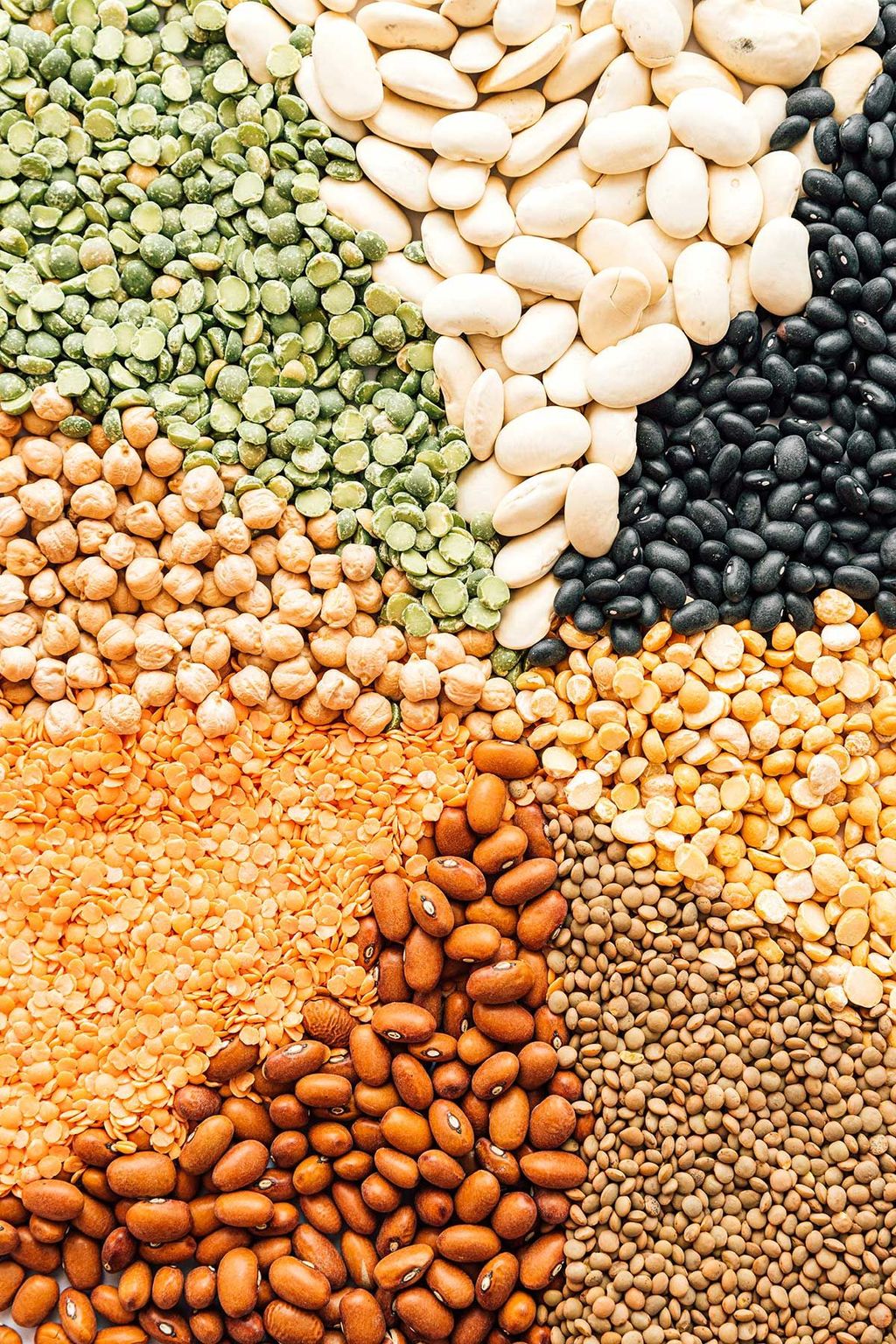
Legumes: Sustained Energy and Sustainable Nutrition for Brain and Body
Legumes represent an agricultural cornerstone, cultivated primarily for their nutrient-rich seeds such as beans and lentils—collectively known as pulses—as well as for livestock forage and silage. Their role extends beyond food production; legumes contribute to sustainable agriculture by enhancing soil fertility through nitrogen fixation. This dual function underscores their ecological and nutritional significance.
Nutritionally, legumes provide a reliable source of sustained energy due to their complex carbohydrates and dietary fiber. Unlike simple sugars that cause rapid fluctuations in blood sugar levels, the energy from legumes is released gradually, ensuring a steady supply of fuel to the brain throughout the day. This slow and consistent energy delivery supports focus, concentration, and cognitive performance while preventing energy crashes.
The symbiotic relationship between legumes and nitrogen-fixing bacteria in root nodules enriches the soil, which translates into a highly nutritious food source for human consumption. Incorporating a variety of legumes—including peas, beans, lentils, and soybeans—into the diet supports balanced nutrition essential for overall health and optimal brain function.
As we continue to explore brain-boosting foods, it is important to recognize that these foundational nutrients not only nourish the mind directly but also sustain the body’s overall vitality. A healthy body provides the essential framework for a sharp and thriving intellect. Legumes exemplify these unsung heroes, offering enduring benefits that contribute to a smoothly functioning system.
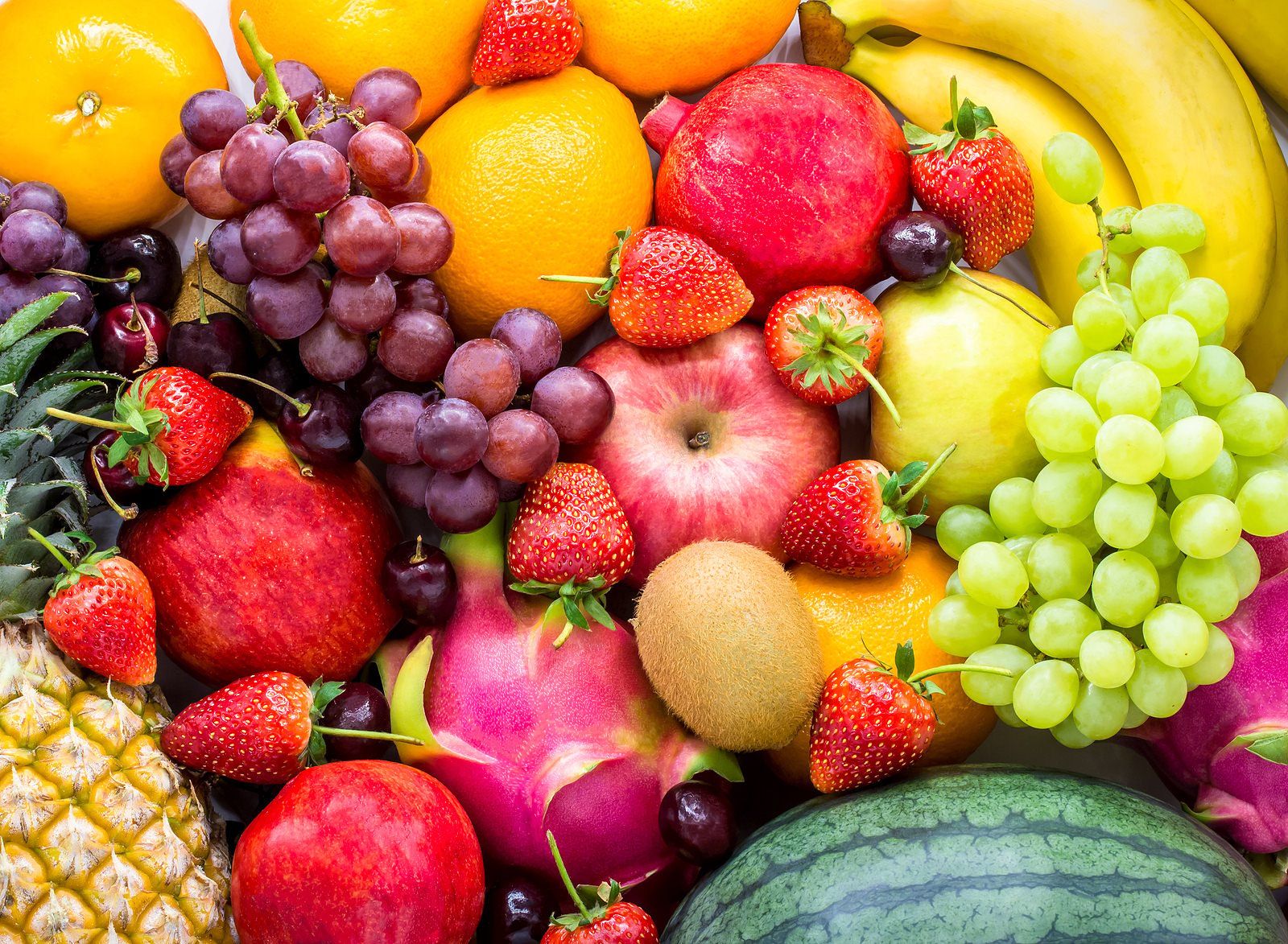
Fruits: Essential Nutrient-Rich Enhancers for Body and Brain
Fruits are indispensable components of a balanced diet and foundational to overall health. These fleshy, seed-associated structures of plants—such as apples, oranges, grapes, strawberries, bananas, and lemons—are widely appreciated for their natural sweetness and versatility in culinary applications. Beyond their appealing flavors, fruits deliver vital nutrients that support the body’s energy production, maintenance, and growth.
By nourishing key bodily systems including cardiovascular and metabolic functions, fruits play a crucial role in ensuring the brain receives a steady supply of oxygen and essential nutrients. This continuous nourishment allows the brain to operate at optimal capacity, highlighting the holistic benefits fruits provide to both body and mind.
Incorporating a variety of fruits into daily meals or snacks offers a simple yet effective means of enhancing overall nutrition. Whether blended into smoothies, consumed fresh, or added to dishes, fruits contribute significantly to sustained health and cognitive vitality, demonstrating that nutritious eating can also be pleasurable.
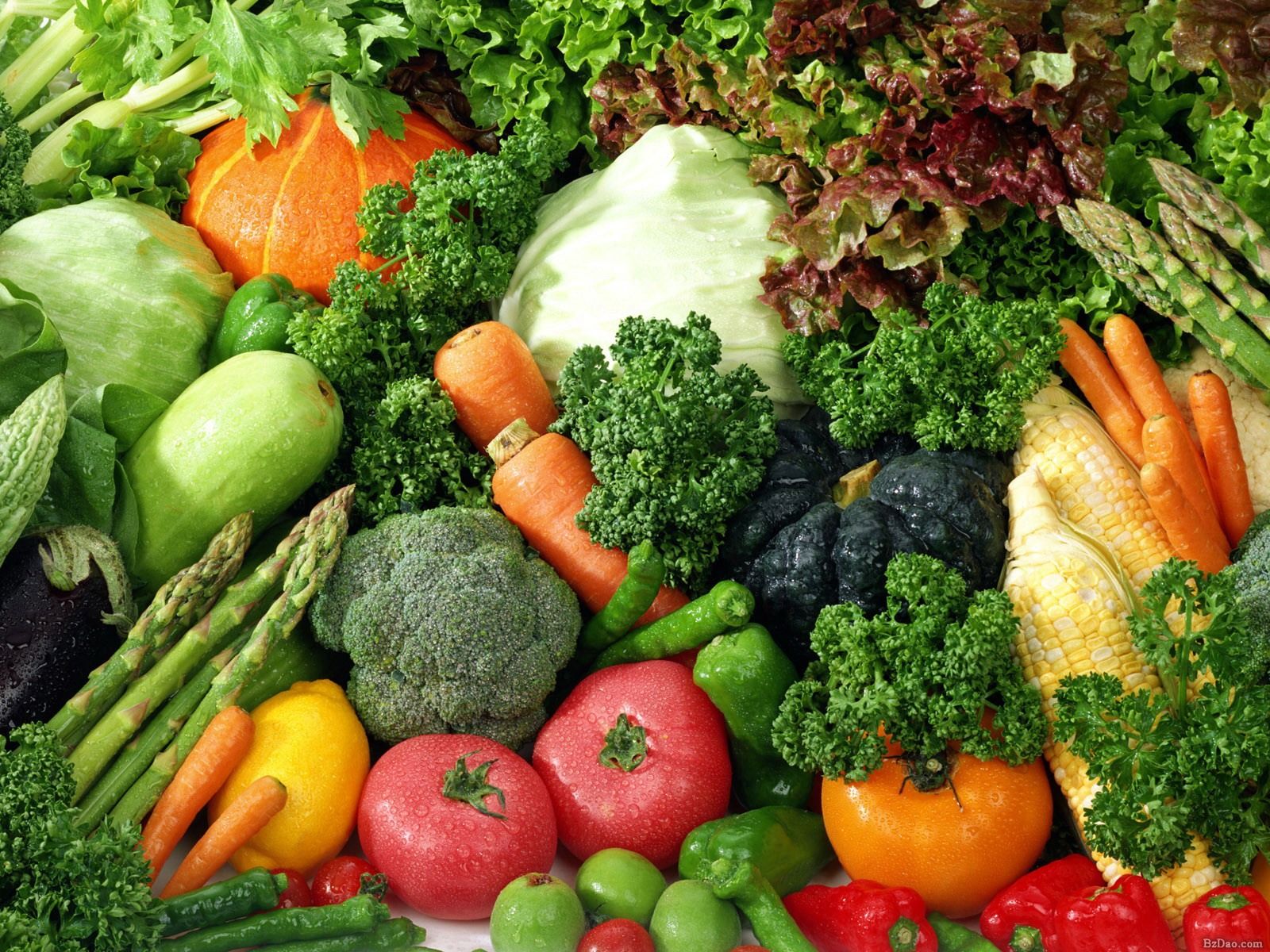
Vegetables: Nutrient-Dense Foundations for Body and Brain Health
Vegetables represent the nutrient-rich foundation of a wholesome diet, offering diverse flavors, textures, and colors that enhance countless culinary traditions worldwide. Defined as edible plants or their parts, vegetables range from the crispness of cabbage to the pungency of garlic and onions, as well as the versatility of potatoes. These vibrant foods provide essential nutrients critical for sustaining life and promoting growth.
Their comprehensive nutritional profile ensures that the body receives the necessary components to function optimally, creating an ideal environment for brain health. Proper nourishment supports cognitive processes such as information processing, concentration, and mood regulation by providing the brain with a steady supply of vital resources.
Incorporating a broad variety of vegetables into meals remains one of the most effective and accessible methods to enhance overall health. Whether sautéed, roasted, steamed, or consumed raw in salads, vegetables offer endless culinary possibilities. As indispensable contributors to physical vitality and mental sharpness, they are truly the unsung heroes of the diet.
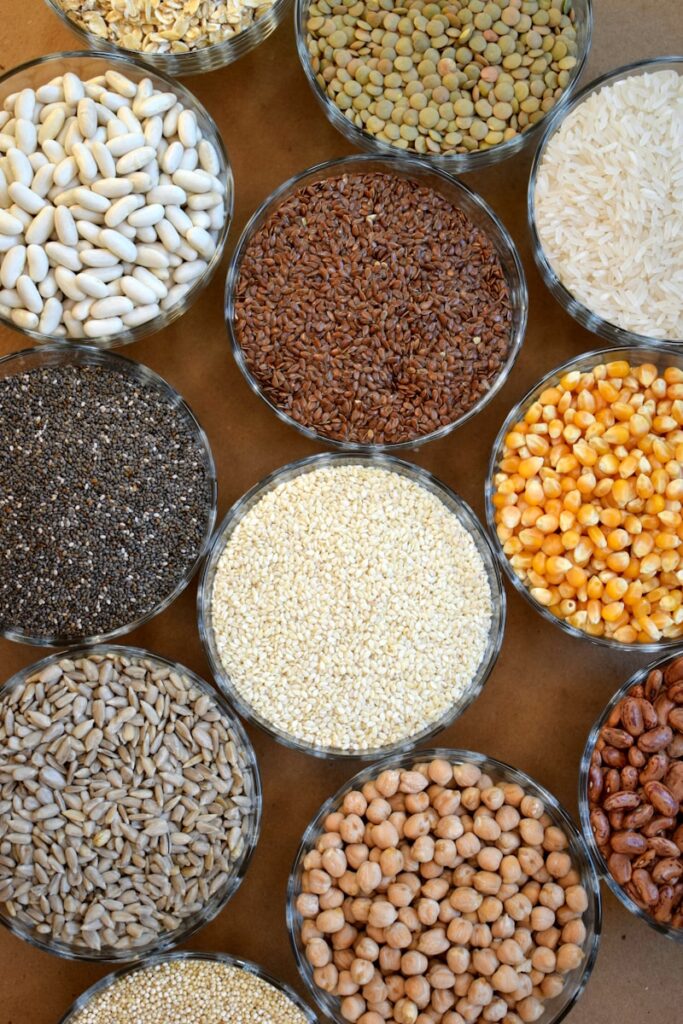
Whole Grains: Reliable Fuel for Cognitive and Physical Endurance
Whole grains, the seeds of certain grass species, have nourished humanity for millennia and remain essential staples today. Maize, wheat, and rice alone provide approximately half of the global caloric intake annually, underscoring their critical role in diets worldwide. Far from being mere fillers, whole grains supply sustained energy vital for all bodily functions, particularly the demanding cells of the brain.
The complex carbohydrates in whole grains release glucose gradually and steadily, avoiding the rapid spikes and crashes associated with simple sugars. This steady energy supply supports consistent cognitive performance throughout the day, ensuring the brain is continuously fueled to think, learn, and retain information without interruption. Whole grains serve as the endurance athletes of nutrition, maintaining the body’s internal energy balance.
Incorporating diverse whole grains into meals—whether as rice, whole wheat bread, or porridge—is a strategic choice to support lasting mental and physical vitality. Their accessibility and versatility make them indispensable contributors to the foundational energy required for optimal brain function day after day.

Lean Meats: Essential Nutrients for Brain Strength and Vitality
Meat has long been a fundamental element of human diets worldwide, valued for its dense nutritional content. Common varieties such as chicken, beef, and pork provide essential nutrients crucial for maintaining overall health and supporting brain function.
Lean meats are especially important due to their high-quality protein, which is vital for the repair and growth of tissues throughout the body, including the complex structures of the brain. Protein is essential in the production of enzymes and hormones that underpin numerous cognitive functions. For example, poultry consumption is associated with favorable cardiometabolic health, promoting an efficient circulatory system that delivers oxygen and nutrients effectively to brain cells. A body well-nourished with these nutrients provides the foundation for brain resilience and optimal performance.
Incorporating lean cuts of meat into a balanced diet offers robust protein support without excessive fat intake. Whether grilled, baked, or stewed, lean meats contribute significantly to physical health, creating an ideal environment for the brain to flourish and function at its best.

Dairy Products: Essential Nutritional Support Beyond Bone Health
Dairy products, derived from the milk of mammals such as cows, goats, sheep, yaks, horses, and camels, have been integral to human diets for millennia. These nutrient-dense foods come in various forms, including milk, cheese, and yogurt, providing versatile options to incorporate into daily meals.
While traditionally recognized for supporting bone health, the benefits of dairy extend to overall physiological wellness. Research indicates that different types of dairy consumption may influence the risk of cardiovascular disease and certain cancers, underscoring their broader role in maintaining systemic health. A well-functioning body supports efficient nutrient delivery and waste removal, which directly enhances brain function by ensuring it remains clear and alert.
Incorporating dairy into your diet—whether through a glass of milk, cheese on a sandwich, or yogurt as a snack—offers essential nutrients that reinforce general health. This solid physiological foundation allows the brain to operate at peak performance, making dairy products a valuable component of a balanced and healthful diet.
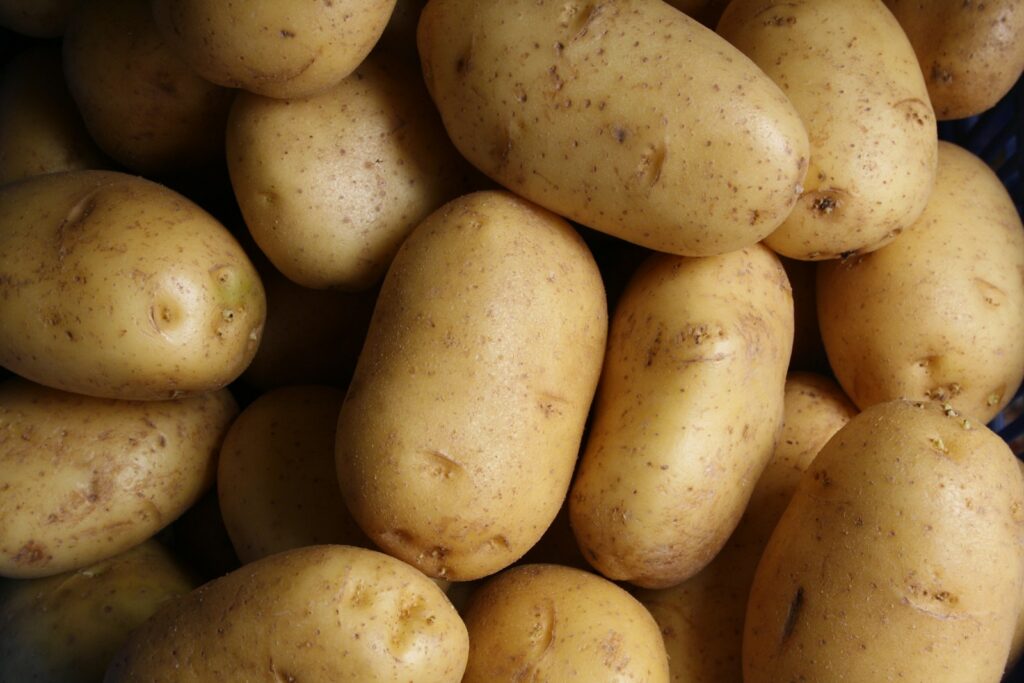
Tubers: Sustained Energy Sources for Optimal Brain Function
Tubers, including potatoes, sweet potatoes, and yams, are specialized plant structures that store essential nutrients. Serving as natural energy reserves for plants, these tubers have long been dietary staples in numerous cultures due to their rich nutritional value and versatility.
Notably, tubers provide a consistent supply of energy-rich carbohydrates that form a significant portion of many diets worldwide. Research indicates that potatoes, in comparison to other staple carbohydrates such as rice, can reduce postprandial blood sugar levels and enhance satiety in healthy adults. This contributes to blood sugar stabilization, ensuring a steady glucose supply to the brain. Such sustained energy delivery is crucial for maintaining concentration, focus, and preventing cognitive fatigue.
From roasted potatoes to mashed sweet potatoes, these root vegetables offer a nourishing and comforting means to fuel both body and mind. Their ease of preparation and widespread availability make them an excellent choice for sustaining the prolonged mental energy necessary for optimal brain performance. Including tubers in daily meals represents a prudent and enjoyable approach to holistic health.
From oceanic delicacies to vibrant fruits, vegetables, grains, and tubers, the twelve foods discussed constitute powerful allies in enhancing brain health and overall well-being. Prioritizing these nutrient-dense foods is a practical and effective strategy to support cognitive function, mood stability, and vitality. Your dietary choices represent an investment in both mental acuity and quality of life.




